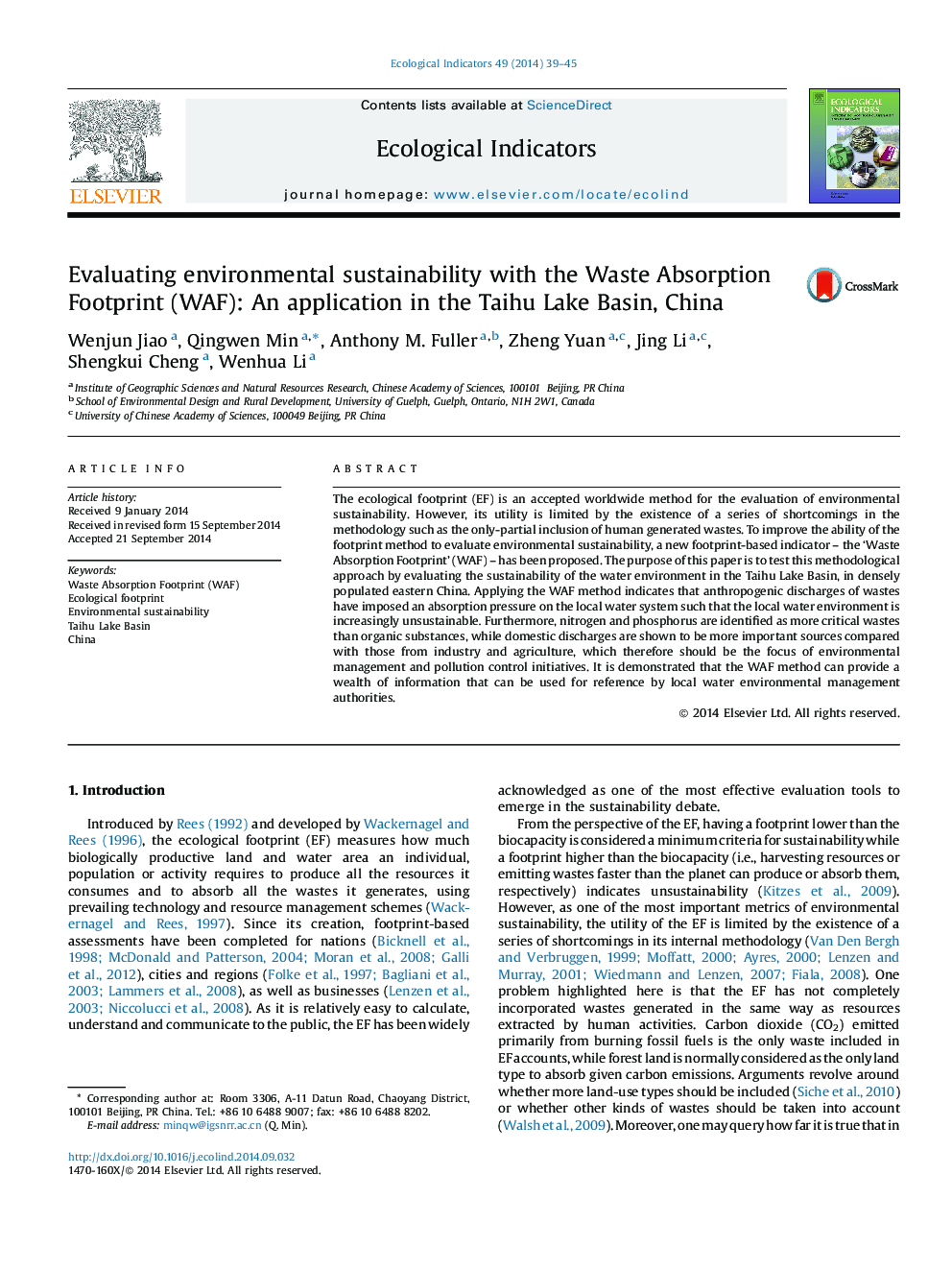| کد مقاله | کد نشریه | سال انتشار | مقاله انگلیسی | نسخه تمام متن |
|---|---|---|---|---|
| 6294777 | 1617152 | 2015 | 7 صفحه PDF | دانلود رایگان |
عنوان انگلیسی مقاله ISI
Evaluating environmental sustainability with the Waste Absorption Footprint (WAF): An application in the Taihu Lake Basin, China
دانلود مقاله + سفارش ترجمه
دانلود مقاله ISI انگلیسی
رایگان برای ایرانیان
کلمات کلیدی
موضوعات مرتبط
علوم زیستی و بیوفناوری
علوم کشاورزی و بیولوژیک
بوم شناسی، تکامل، رفتار و سامانه شناسی
پیش نمایش صفحه اول مقاله

چکیده انگلیسی
The ecological footprint (EF) is an accepted worldwide method for the evaluation of environmental sustainability. However, its utility is limited by the existence of a series of shortcomings in the methodology such as the only-partial inclusion of human generated wastes. To improve the ability of the footprint method to evaluate environmental sustainability, a new footprint-based indicator - the 'Waste Absorption Footprint' (WAF) - has been proposed. The purpose of this paper is to test this methodological approach by evaluating the sustainability of the water environment in the Taihu Lake Basin, in densely populated eastern China. Applying the WAF method indicates that anthropogenic discharges of wastes have imposed an absorption pressure on the local water system such that the local water environment is increasingly unsustainable. Furthermore, nitrogen and phosphorus are identified as more critical wastes than organic substances, while domestic discharges are shown to be more important sources compared with those from industry and agriculture, which therefore should be the focus of environmental management and pollution control initiatives. It is demonstrated that the WAF method can provide a wealth of information that can be used for reference by local water environmental management authorities.
ناشر
Database: Elsevier - ScienceDirect (ساینس دایرکت)
Journal: Ecological Indicators - Volume 49, February 2015, Pages 39-45
Journal: Ecological Indicators - Volume 49, February 2015, Pages 39-45
نویسندگان
Wenjun Jiao, Qingwen Min, Anthony M. Fuller, Zheng Yuan, Jing Li, Shengkui Cheng, Wenhua Li,